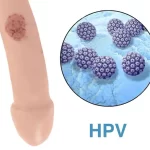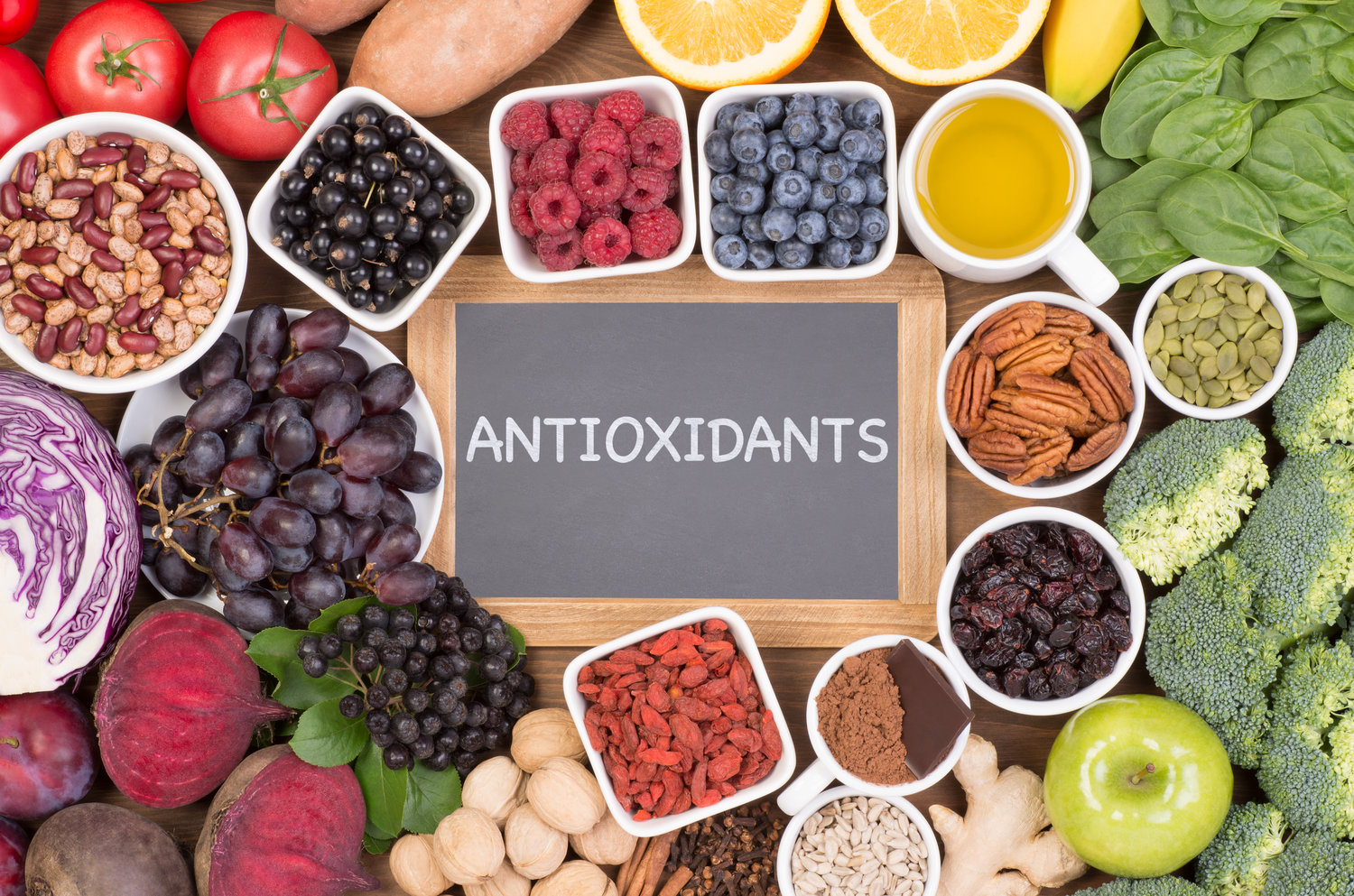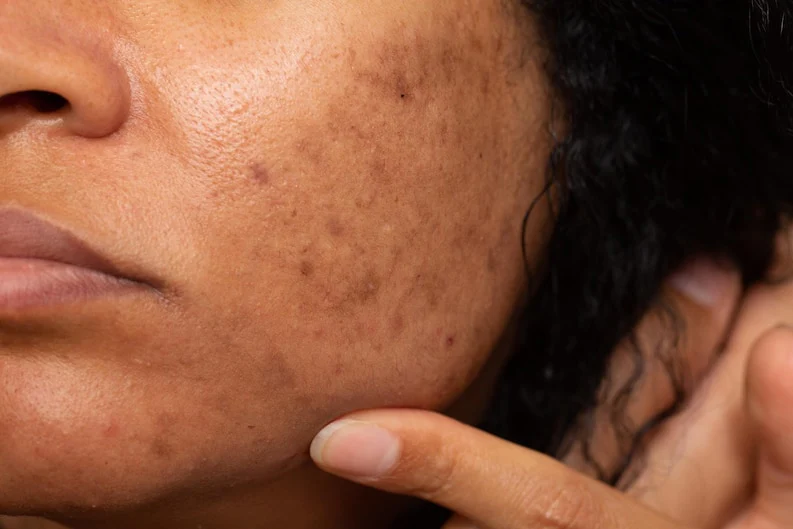So, What do Antioxidants do?
It’s not bad to ask the question: “what do antioxidants do?” because it is quite imperative to learn and learn. To begin with, antioxidants are compounds that can protect cells from damage caused by free radicals and oxidative stress, which are linked to various health issues.
Antioxidants are substances that inhibit oxidation, a chemical reaction that can lead to the production of free radicals. Free radicals can cause degradation of organic compounds, including living matter.
In industrial products like polymers, fuels, and lubricants, antioxidants are commonly added to prolong their usable lifespans. Foods are also treated with antioxidants to prevent spoilage, particularly the rancidification of oils and fats.
Within cells, antioxidants such as glutathione, mycothiol, or bacillithiol, as well as enzyme systems like superoxide dismutase, help prevent damage from oxidative stress.
While vitamins A, C, and E are well-known dietary antioxidants, there are numerous other dietary compounds that exhibit antioxidant properties in laboratory settings (in vitro) but lack substantial evidence for antioxidant effects in living organisms (in vivo). Dietary supplements marketed as antioxidants have not been proven to maintain health or prevent disease in humans.
History of Antioxidants
In the course of adapting from marine to terrestrial environments, plants began producing non-marine antioxidants like ascorbic acid (vitamin C), polyphenols, and tocopherols.
The evolution of flowering plants between 50 and 200 million years ago led to the development of many antioxidant pigments, particularly during the Jurassic period, as chemical defenses against reactive oxygen species produced during photosynthesis.
Originally, the term “antioxidant” specifically referred to a chemical that prevented the consumption of oxygen.
In the late 19th and early 20th centuries, extensive research focused on using antioxidants in vital industrial processes, such as preventing metal corrosion, rubber vulcanization, and fuel polymerization in internal combustion engines.
Sources of Oxidative Stress
The body encounters oxidative stress through metabolic processes and exposure to environmental factors like pollution, tobacco, and alcohol.
Impact of Oxidative Stress
Oxidative stress and free radicals contribute to aging and diseases such as cardiovascular disease, diabetes, neurodegeneration, and cancer.
Types of Antioxidants
Antioxidants can be natural or synthetic and are found in fruits, vegetables, and supplements. Some are produced by the body, while others come from dietary sources.
Common Antioxidants Include:
- Vitamins A, C, and E
- Selenium
- Zinc
- Carotenoids
- Flavonoids
- Glutathione
Understanding Antioxidant Function
Although antioxidants have both beneficial and adverse effects, scientists are still exploring their mechanisms and effects comprehensively.
Sources of Antioxidants
Antioxidants are abundant in plant-based foods, with fruits and vegetables leading the pack. Other sources include nuts, whole grains, and certain meats, poultry, and fish.
Specific Antioxidants and Their Sources:
- Allium sulphur compounds: Leeks, onions, and garlic
- Anthocyanins: Eggplant, grapes, and berries
- Beta-carotene: Pumpkin, mangoes, apricots, carrots, spinach, and parsley
- Catechins: Red wine and tea
- Copper: Seafood, lean meat, milk, and nuts
- Cryptoxanthins: Red capsicum, pumpkin, and mangoes
- Flavonoids: Tea, green tea, citrus fruits, red wine, onion, and apples
- Indoles: Cruciferous vegetables such as broccoli, cabbage, and cauliflower
- Isoflavonoids: Soybeans, tofu, lentils, peas, and milk
- Lignans: Sesame seeds, bran, whole grains, and vegetables
- Lutein: Green, leafy vegetables like spinach and corn
- Lycopene: Tomatoes, apricots, pink grapefruit, and watermelon
- Manganese: Seafood, lean meat, milk, and nuts
- Polyphenols: Herbs
- Selenium: Seafood, offal, lean meat, and whole grains
- Vitamin A: Liver, sweet potatoes, carrots, milk, and egg yolks
- Vitamin C: Oranges, blackcurrants, kiwifruit, mangoes, broccoli, spinach, capsicum, and strawberries
- Vitamin E: Vegetable oils (such as wheatgerm oil), avocados, nuts, seeds, and whole grains
- Zinc: Seafood, lean meat, milk, and nuts
- Zoochemicals: Red meat, offal, and fish. Also derived from the plants that animals eat.
What do Antioxidants do for your Skin?
The beauty industry thrives on selling cosmetics and supplements that promise to make you look younger. Walking down the facial cream aisle, you’ll see how popular antioxidants have become. But are antioxidants really as amazing for your skin as they’re made out to be?
Finding your first wrinkles in your 20s can be a shock. While it’s normal for skin to age early, it can make you worry about getting older. Beauty products with anti-aging claims often come with a high price tag.
So, knowing which ingredients can genuinely improve your skin can save you both money and worry.
The Role of Antioxidants in Skin Health
Antioxidants play a crucial role in protecting the skin from harmful UV radiation, a major contributor to skin aging.
Supplying Essential Nutrients
Providing the skin with essential nutrients both externally and internally through a diverse diet is considered the most cost-effective way to improve its condition.
Key Antioxidants for Skin Health
- Carotenoids: Vital for the epidermis
- Zinc: Necessary for new cell formation
- Selenium: Inhibits wrinkle formation
- Vitamin E: May protect against skin cancer
Benefits of Antioxidants for Skin
Antioxidants can benefit the skin by:
- Reducing DNA damage from UV light
- Improving hydration
- Stimulating collagen and elastin production
- Diminishing wrinkles and pigmentation
- Supporting healing processes
- Reducing inflammation
- Softening the skin
Prevention of Skin Conditions
Antioxidants may also play a preventive role in various skin conditions. For instance, lower levels of vitamin E have been observed in patients with vitiligo, atopic dermatitis, and acne.
Potential in Treating Skin Conditions
Antioxidants show promise in countering the involvement of oxidative stress in conditions like psoriasis, suggesting their potential therapeutic value. Further research is needed to evaluate their effectiveness in improving skin diseases.
Important Antioxidants
In this article, we’ll explore the science behind using antioxidants for your skin. We’ll also hear from several experienced skin experts. If you’re curious about the best foods rich in antioxidants for your skin, check out our list of 10 antioxidant-rich foods to include in your diet.
To understand antioxidants and their function, it’s important to know about free radicals. When our bodies encounter biological and environmental stressors like air pollution, tobacco smoke, UV rays, or harmful bacteria and viruses, they produce highly reactive compounds called free radicals.
These free radicals lack one or more electrons in their atomic structure, so they try to obtain stability by ‘stealing’ electrons from other molecules. This process, known as oxidative stress, can lead to significant damage to DNA strands and cell membranes in our bodies.
It might seem strange, but our bodies actually require a certain amount of oxidative stress. Without it, we’d have trouble fighting infections or eliminating defective cells. However, when oxidative stress becomes too much, it can lead to various health problems. That’s where antioxidants come in.
Antioxidants are substances that can neutralize free radicals by offering up some of their own electrons.
This helps protect our cells from harm. While our bodies naturally produce some antioxidants, we also need to get many of them from the foods we eat or apply them directly to our skin.
Nutrition plays a huge role in keeping our skin healthy. It needs various nutrients like vitamins, minerals, fatty acids, and phytonutrients to stay in top shape.
Antioxidants, in particular, are essential for maintaining its health and youthful look because our skin faces many environmental and biological stressors every day.
Free radicals, those troublemakers in our bodies, can wreak havoc on our skin. They break down collagen, mess with our skin’s natural repair processes, and cause inflammation.
According to a review in The Journal of Dermatological Science, these pesky compounds are a big reason behind skin aging, leading to wrinkles, uneven skin tone, pigmentation issues, and even acne breakouts.
They also play a role in conditions like melasma, which causes patches or spots on the skin, especially on the face and neck.
Dr. Julia Tzu, a dermatologist, emphasizes the importance of antioxidants in fighting these issues. They help neutralize free radicals, reducing cellular damage and inflammation that can lead to skin cancer and aging signs.
A lot of skin damage comes from exposure to UV rays. Antioxidants act as extra protection, boosting the effectiveness of sunscreen against UV damage and other pollutants, says Dr. Julie Karen, a dermatologist.
Many plants produce antioxidants to shield themselves from excessive sunlight, and these compounds can benefit us too, according to The International Journal of Molecular Sciences.
So, should you get your antioxidants from food or apply them directly to your skin?
Well, both ways can be beneficial. Dr. Anton Alexandroff, a dermatologist, suggests eating antioxidant-rich foods for overall health benefits, while applying them topically can give your skin a concentrated dose of protection, especially against UV damage.
Dr. Tzu adds that topical application is more focused for specific skin concerns, while ingestion benefits overall health, including the skin.
Vitamin Supplements and Antioxidants:
Research suggests that antioxidants are more effective when obtained from whole foods rather than isolated in tablet form. Some vitamin supplements may even increase the risk of certain cancers. For example, while vitamin A (beta-carotene) can reduce the risk of certain cancers, it may increase the risk of lung cancer in smokers.
Balanced Diet vs. Supplements:
A well-balanced diet, rich in antioxidants from whole foods, is considered the best approach. If considering supplements, seek advice from a healthcare professional and choose supplements that contain nutrients at recommended levels to avoid potential risks.
Best Antioxidants for Skin
Vitamin C: Known as a powerhouse for boosting the immune system, vitamin C also works wonders for our skin. Dr. Tzu explains that it’s a potent antioxidant that not only helps to fade dark spots but also stimulates the production of collagen, a protein crucial for maintaining skin firmness and elasticity.

Research published in the Nutrients journal confirms its pivotal role in collagen production and protecting the skin from damage caused by harmful UV rays. Additionally, vitamin C can regulate the production of sebum, an oily substance produced by the skin, making it beneficial for individuals struggling with acne.
When applied topically, it has been shown to effectively manage acne lesions, further solidifying its status as a skincare superstar.
Vitamin E: Specifically, alpha-tocopherol, a form of vitamin E, stands out as a potent fat-soluble antioxidant, as highlighted by Dr. Alexandroff. Studies indicate that this vitamin plays a crucial role in preserving the integrity of skin lipids, which are essential for maintaining the skin’s barrier function.
Furthermore, vitamin E has been shown to reduce the risk of autoimmune skin conditions such as eczema and psoriasis. When incorporated into creams and balms, vitamin E acts as a shield against sunburn, excessive pigmentation, and even skin cancer, underscoring its importance in skincare.
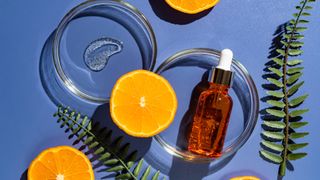
Vitamin D: While primarily known for its role in bone health and immunity, vitamin D also offers significant benefits for the skin. Active metabolites of vitamin D aid in the healing of damaged skin tissues and prevent DNA damage, ultimately slowing down the skin aging process and reducing the risk of skin cancer.
This protective effect extends to various skin conditions, making adequate vitamin D levels crucial for overall skin health.
Vitamin B3 (Niacinamide): Beyond its role in regulating blood lipid levels and enhancing brain function, niacinamide, a form of vitamin B3, emerges as a potent antioxidant with numerous skincare benefits. Dr. Tzu explains that niacinamide effectively reduces hyperpigmentation, strengthens the skin barrier, and alleviates inflammation.
When ingested, it works to lower oxidative stress and suppress inflammatory responses in skin cells, contributing to a healthier and more resilient skin barrier.
When applied topically, niacinamide has been found to be effective in treating a wide range of skin concerns, including acne, hyperpigmentation, atopic dermatitis, and rosacea.
Vitamin A and Retinoids: Vitamin A, commonly known as retinol, boasts a plethora of benefits for the skin. As a potent antioxidant, it provides protection against UV radiation, thereby improving the appearance of wrinkles and sagging skin.
Additionally, research published in the Cells journal highlights its role in reducing the risk of developing skin cancer, acne, and psoriasis. However, it’s essential to exercise caution when using topical retinoids, as they may cause skin irritation, such as burning or scaling.
Despite this potential drawback, the benefits of incorporating vitamin A into your skincare regimen are undeniable, making it a valuable addition to any skincare routine.
Astaxanthin: This naturally occurring compound, produced by various bacteria, microalgae, and yeasts, serves as the pigment responsible for the vibrant pink hue of salmon.
Research published in the Journal of Cosmetic Dermatology indicates that astaxanthin holds promise in preventing skin diseases and expediting the skin’s repair processes.
While ongoing studies continue to explore its full potential, preliminary evidence suggests that combining both topical and oral forms of astaxanthin may effectively lock in moisture, resulting in smoother fine lines and wrinkles.
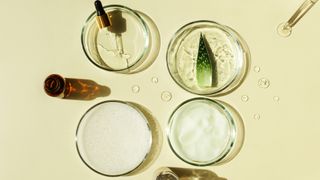
Resveratrol: Found predominantly in red grapes, red wine, grape juice, peanuts, cocoa, and berries, resveratrol belongs to a class of polyphenolic antioxidants.
While most studies have focused on its cardiovascular benefits, emerging evidence suggests that resveratrol and similar polyphenols offer protection against photodamage, skin infections, and skin cancer, particularly when consumed through dietary sources or supplements.
Dr. Tzu emphasizes that these antioxidants are potent agents in reducing signs of aging and inflammation, as well as safeguarding the skin from cancer and photodamage.
Green Tea Polyphenols: Renowned for its numerous health benefits, green tea stands out as a rich source of polyphenolic antioxidants renowned for their potent anti-wrinkle effects. Dr. Karen underscores their potency and extensive study.
Research published in the Nutrients journal reveals that green tea polyphenols exhibit antioxidant properties capable of neutralizing free radicals, stimulating collagen and elastin production, and reducing levels of collagen-degrading enzymes in the skin.
Moreover, these antioxidants may slow the progression of skin cancers. While green tea infusions provide a direct source of polyphenols, dietary supplements and cosmetics frequently incorporate them into their formulations to harness their skin-enhancing properties.
Antioxidants and Your Diet
While our bodies produce some antioxidants naturally, it’s important to supplement our intake through our diet to ensure we receive an adequate amount.
Antioxidant-Rich Foods
Here are some examples of antioxidants and the foods or vitamin sources where you can find them, as recommended by
- Vitamin C: Broccoli, Brussels sprouts, sweet potatoes, bell peppers, tomatoes, and citrus fruits like lemons and limes.
- Vitamin E: Almonds, avocado, sunflower seeds, oatmeal, and legumes such as beans, lentils, and split peas.
- Beta-carotene: Apricots, cantaloupe, mangos, carrots, grapefruit, and bell peppers.
- Selenium: Eggs, tuna, salmon, brown rice, onions, and various other vegetables.
My Emerald Health, like many healthcare information providers, advocates for a “rainbow diet” to ensure your body receives all the necessary nutrients:
A rainbow diet involves consuming fruits and vegetables of different colors, such as green (broccoli or spinach), red (tomatoes or strawberries), orange (carrots or oranges), and yellow (bell peppers or bananas).
This diverse selection ensures you obtain a wide range of vitamins, nutrients, and antioxidants essential for maintaining optimal health.

A graduate of Computer Science and Information Management Technology. Diploma – Caregiving, Certificates – Dementia and Diabetes Awareness and Management. A researcher, blogger, songwriter, singer and acoustic guitarist. Born in an environment where natural talents such as healing are imparted at our natural birth. This natural talents of healing is the result of our genetic inheritance and the training from family environment.







